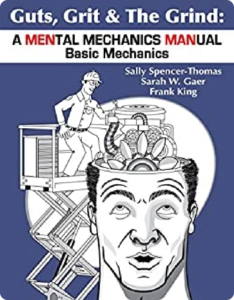Navigating the Mental Health Maze: Insights from “The Mental Health Comedian”
In a world that’s increasingly aware of the importance of mental health, it’s crucial to discuss the underlying challenges experienced by various professionals. The Mental Health Comedian, Frank King, explores these themes with humor and depth in Episode 29 of “The Mental Health Comedian” podcast, revealing some sobering truths about depression and suicide.
A Comedian’s Journey Through Darkness
Frank King, a comedian and speaker known for his powerful presentations on mental health, opens up about his personal battle with depression and thoughts of suicide. His career as a comedian began as a lifeline—a way to escape a life that felt suffocating. He humorously recounts how his decision to pursue comedy over a conventional job path was in itself an act of survival. His story underscores a poignant truth: sometimes the path to happiness isn’t a straight line but a complex journey through dark terrain.
Depression in the Professional Sphere
In the podcast, King sheds light on a recurring theme: the high incidence of depression in certain professions, particularly among dentists. Known for their high stress levels and financial pressures, dentists frequently face an uphill battle with mental health. King accurately describes how these pressures, combined with the solitude of being the sole licensed practitioner in a practice, can lead to significant mental and physical health challenges. It’s not just about the work; it’s also about the unseen pressures of entrepreneurship and the burden of responsibility for others’ livelihoods.
Spotting the Signs of Suicide and Depression
King doesn’t shy away from discussing the critical importance of identifying signs of depression and suicide. He highlights various symptoms—changes in eating and sleeping habits, lack of interest in activities, and uncharacteristic happiness after prolonged depression. He emphasizes the importance of asking direct questions about suicidal thoughts and being prepared to act if someone reveals they have a plan. The podcast stresses that these conversations can save lives, underscoring the necessity of equipping more people with the skills to engage in them.
Breaking the Stigma and Building Support Networks
The discussion also delves into the stigma surrounding mental health, particularly how societal perceptions can inhibit open dialogue. King and his co-hosts discuss the value of supportive environments where professionals can share their struggles without fear of judgment. They advocate for mental health education and accessible resources, pointing out that professional gatherings, like those for dentists, should include discussions on mental wellness to create a more holistic support system.
Resources for Mental Health Support
Throughout the episode, King and the hosts of “The Dental Amigos” stress the importance of utilizing available resources. They mention organizations like the National Alliance on Mental Illness (NAMI) and the suicide prevention lifelines—tools that are invaluable for those struggling with mental health issues. These resources provide critical support, guiding individuals through moments of crisis and ensuring they never have to navigate their struggles alone.
Conclusion: A Call to Action for Empathy and Awareness
The episode offers an insightful look into the intersections of mental health, professional life, and personal fulfillment. It calls for empathy, awareness, and action—reminding listeners that mental health is as critical as physical health and should be treated with the same level of seriousness and care. Frank King’s blend of humor and heartfelt advocacy shines a light on a journey not often spoken about openly, paving the way for more inclusive and compassionate conversations around mental health in the professional world.
In embracing this dialogue, Frank King and “The Mental Health Comedian” podcast not only provide solace to those battling similar issues but also equip listeners with the knowledge and courage to foster change within their communities.

